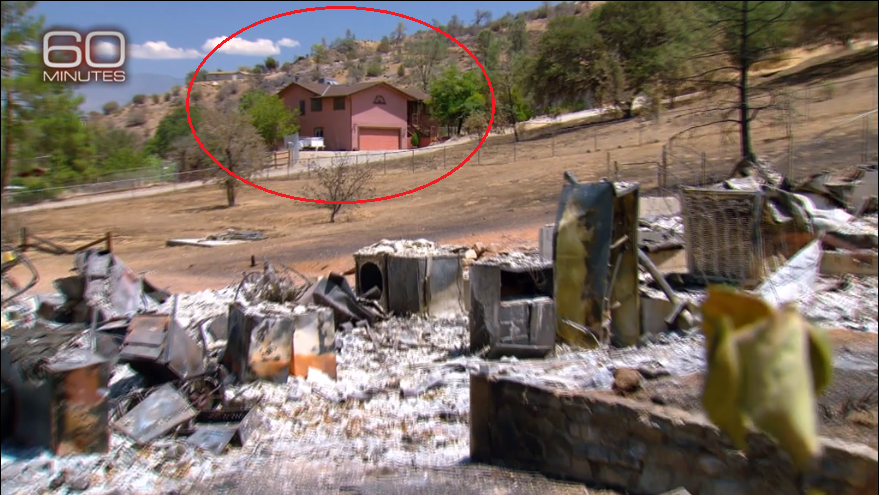Are Electric Cars Better for the Environment? Is This a Stupid Question?
A surprising number of people who think of themselves as environmentally concerned say electric cars are no better for mitigating pollution or climate change than regular cars. Former tech reporter Walt Mossberg asked about this on twitter. Comedian Jenn Kirkman said on her podcast last month she was buying a new car that was not electric. I caught a random conversation from people saying the particulate matter emitted from EV brakes was just as polluting as everything emitted from a regular car. This view has become so pervasive that academics are playing defense, and just last month published a study "Electric cars produce less CO2 than petrol vehicles, study confirms."
To many, it's a forgone conclusion that electric cars emit less CO2 into the atmosphere while in use. But someone muddied the waters along the way and left many with the notion that EVs score even with gas-powered vehicles when measuring how much CO2 they emit. Who muddied the waters? Someone named Bjørn Lomborg, according to this article in the Guardian, published a widely-reprinted opinion column last year saying EVs were “simply expensive gadgets heavily subsidized for the wealthy to feel good while doing very little for the planet”. On my way to researching just who Bjorn Lomborg is, I happened upon another EV "skeptic" or petrol-powered car spinner named Hans-Werner Sinn.
Hans-Werner Sinn published an academic paper and at least one news article based on that paper saying EVs, when recharged by coal-fired power plants, emit as much CO2 as deisel cars. Well of course EVs will emit more CO2 when they're powered by coal-fired power plants. The idea, I thought, was to buy an EV now while the people who run the power grids convert from coal and natural gas to solar and wind or nuclear power. What an odd, some might say disengenuous, argument to make to omit the power grid source (coal vs. solar, which is cleaner??) But is it disengenuous? In the lede of his own article, Hans-Werner Sinn confesses that gas-powered vehicle sector, one of Germany's strongest sectors, "is also facing the existential threat of exceedingly strict European Union emissions requirements, which are only seemingly grounded in environmental policy." Says Sinn:
---------------------------- Further Reading:
"Great news this morning – Volvo have announced that from 2019 onwards they will not be making any cars that solely run on internal combustion engines (normally petrol or diesel). Instead the car giant will be adding electric battery technology to all cars built." thegreenage.co.uk
"In the early 1900s, the electric vehicle was reserved for dignitaries the likes of Thomas Edison, John D. Rockefeller, Jr. and Clara Ford, the wife of Henry Ford. They chose this transportation for its quiet ride over the vibrating and polluting internal combustion engine." batteryuniversity.com

This work by AJ Fish is licensed under a Creative Commons Attribution-NonCommercial 4.0 International License.
To many, it's a forgone conclusion that electric cars emit less CO2 into the atmosphere while in use. But someone muddied the waters along the way and left many with the notion that EVs score even with gas-powered vehicles when measuring how much CO2 they emit. Who muddied the waters? Someone named Bjørn Lomborg, according to this article in the Guardian, published a widely-reprinted opinion column last year saying EVs were “simply expensive gadgets heavily subsidized for the wealthy to feel good while doing very little for the planet”. On my way to researching just who Bjorn Lomborg is, I happened upon another EV "skeptic" or petrol-powered car spinner named Hans-Werner Sinn.
Hans-Werner Sinn published an academic paper and at least one news article based on that paper saying EVs, when recharged by coal-fired power plants, emit as much CO2 as deisel cars. Well of course EVs will emit more CO2 when they're powered by coal-fired power plants. The idea, I thought, was to buy an EV now while the people who run the power grids convert from coal and natural gas to solar and wind or nuclear power. What an odd, some might say disengenuous, argument to make to omit the power grid source (coal vs. solar, which is cleaner??) But is it disengenuous? In the lede of his own article, Hans-Werner Sinn confesses that gas-powered vehicle sector, one of Germany's strongest sectors, "is also facing the existential threat of exceedingly strict European Union emissions requirements, which are only seemingly grounded in environmental policy." Says Sinn:
The EU clearly overstepped the mark with the carbon dioxide regulation that went into effect on 17 April 2019. From 2030 onwards, European carmakers must have achieved average vehicle emissions of just 59 grams of CO2 per km, which corresponds to fuel consumption of 2.2 litres of diesel equivalent per 100 km (107 miles per gallon). This simply will not be possible.That's very honest for a spin-meister lobbyist type to say the new standards will be impossible to meet. Let's hear more:
Even the most gifted engineers will not be able to build internal combustion engines (ICEs) that meet the EU’s prescribed standards (unless they force their customers into soapbox cars). But, apparently, that is precisely the point. The EU wants to reduce fleet emissions by forcing a shift to electric vehicles. After all, in its legally binding formula for calculating fleet emissions, it simply assumes EVs do not emit any CO2 whatsoever.OK. This is interesting. So maybe the EU's environmental policy makers were the ones being disengenuous. Will it be impossible to make gas-powered vehicles at the new standards? There is a response to Simm's OpEd, which appears in The Guardian. It's written by an EU environmental policy maker named William Todts. Todts begins "Hans-Werner Sinn is quite the character. This German economics professor’s writings range from the Greek crisis to migration, to German energy policy." Oh, my. Let's read on, where Mr. Todts continues onto a more rational plane of argument:
But this isn’t about Sinn. In fact, whenever you read a newspaper article claiming EVs are worse than diesel or petrol cars, that article will be based on a report that deliberately makes EVs look worse than they are.Todts continues that when powering a car from solar and wind, there is no contest, EVs emit less CO2 than gas-powered cars. He says coal is being phased out in England and even in "Trump's America" which it is. There is still an issue of how to make all these lithium ion batteries -- yes, even though they're recycled -- but an issue we'll leave for another day.
Usually the plot is as follows: a smaller petrol or diesel car is compared with a bigger, more powerful electric car; then the fossil fuel car is assumed to be as efficient as the EU’s official tests portray (in reality its fuel economy is always a lot worse); and finally the electric car is driving in a region with a very dirty electricity mix. Then you assume very high emissions for battery production based on outdated studies and finally you pretend electric cars don’t last very long and that its batteries aren’t reused or recycled.
---------------------------- Further Reading:
Genuinely curious: why are electric cars always pictured as clean & pure, when they rely on power plants worldwide that mostly use fossil fuels (coal, natural gas) or nuclear (risk, waste issue)? The electricity to charge the batteries is still mainly made by problematic means. pic.twitter.com/Fzxt3gv6GW
— Walt Mossberg (@waltmossberg) February 16, 2020
"Great news this morning – Volvo have announced that from 2019 onwards they will not be making any cars that solely run on internal combustion engines (normally petrol or diesel). Instead the car giant will be adding electric battery technology to all cars built." thegreenage.co.uk
"In the early 1900s, the electric vehicle was reserved for dignitaries the likes of Thomas Edison, John D. Rockefeller, Jr. and Clara Ford, the wife of Henry Ford. They chose this transportation for its quiet ride over the vibrating and polluting internal combustion engine." batteryuniversity.com

This work by AJ Fish is licensed under a Creative Commons Attribution-NonCommercial 4.0 International License.




